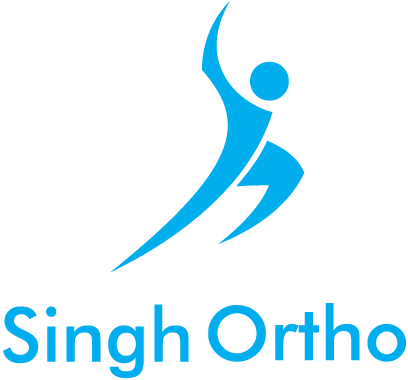Groundbreaking Five-Year Study Confirms Stability of the Novel Reverse Hip Replacement System (Reverse HRS) Design
This novel reverse total hip arthroplasty (RTHA) design has been developed with enhanced mechanical stability at extremes of motion by reversing the articulating surfaces using a femoral cup and acetabular ball. The purpose of this study was to assess the implant-bone fixation using radiostereometric analysis (RSA), assess the linear wear of the cross-linked polyethylene insert and monitor the clinical safety and efficacy of this novel design.
Source: OrthoSpineNews
What Is the P.O.L.I.C.E. Principle?
The P.O.L.I.C.E. principle may be the new way to ice and otherwise treat a musculoskeletal injury, such as a sprain or strain. The acronym stands for the five steps involved: protection, optimal loading, ice, compression, and elevation. One thing it's missing? Rest, a component of the long-used R.I.C.E. method (rest, ice, compression, and elevation). Some healthcare practitioners now consider P.O.L.I.C.E. an advanced and favored approach.
Source: Verywell Health
Q&A: How sports-related concussions affect reaction times
When playing sports, it's important to remember: Brains don't have seat belts. When rapid acceleration or deceleration of the brain inside the skull occurs with a blow to the head, a concussion happens, which in some cases can lead to lasting impacts on motor and cognitive skills needed to keep athletes at the top of their game.
Source: Medical News Today
Hip Weakness May Contribute to Knee Pain
The movement and stability of your hips and knees work together and share several muscles. The hip is a ball and socket joint and is a major weight-bearing joint in the body. There are many ligamentous attachments that add to the stability of your hip.
Source: Verywell health
Aerobic exercise found to be most effective for knee osteoarthritis
For patients with knee osteoarthritis, aerobic activities such as walking, cycling, or swimming are likely to be the best exercise for improving pain, function, gait performance, and quality of life, finds a study published by The BMJ today.
Source: News Medical Life Sciences
Could just 1 course of radiotherapy help treat osteoarthritis pain?
Radiation therapy or radiotherapy is an underutilized noninvasive treatment option for osteoarthritis, but data from clinical trials have been mixed. A recent randomized controlled clinical trial demonstrated that a single course of low-dose radiation therapy was more effective in reducing pain and improving mobility in individuals with mild to moderate knee osteoarthritis at 4 months after treatment than the control group that did not receive radiation therapy.
Source: Medical News Today
Efficacy of Lower Limb Wearables to Assess Recovery Following Total Hip or Knee Arthroplasty: A Systematic Review and Meta-Analysis
The purpose of this review was to assess the use of lower-limb wearable sensors in monitoring total hip arthroplasty (THA) or total knee arthroplasty (TKA) recovery. Outpatient postoperative assessment routinely focuses on patient-reported outcome measures (PROMs), which can be limited by ceiling effects and subjective reporting. Wearable sensors provide objective, real-time, remote data, enabling recovery tracking, rehabilitation protocol adjustments, and patient exercise adherence. Lower-limb sensors are particularly useful, as close proximity allows monitoring of clinical outcomes specific to the affected joint.
Successful management of PJI occurred in about 50% of patients
Results presented at the Musculoskeletal Infection Society Annual Meeting showed successful management of periprosthetic joint infection occurred in a little more than half of cases after total joint arthroplasty.
What Happens to Your Body When You Play Tennis Regularly
Research shows tennis may extend lifespan and improve heart health, bone strength, mobility, and social connection. While injuries, cost, and access can be drawbacks, experts agree that tennis provides broad health benefits.
Short to mid-term outcomes of hip arthroscopy for femoroacetabular impingement and labral tears in patients with diabetes
The purpose of this study is to report outcomes of patients with Diabetes Mellitus (DM) who underwent hip arthroscopy for femoroacetabular impingement (FAI) at short- to mid-term timepoints comparing these results to a control group of non-DM patients.
- left
- right










